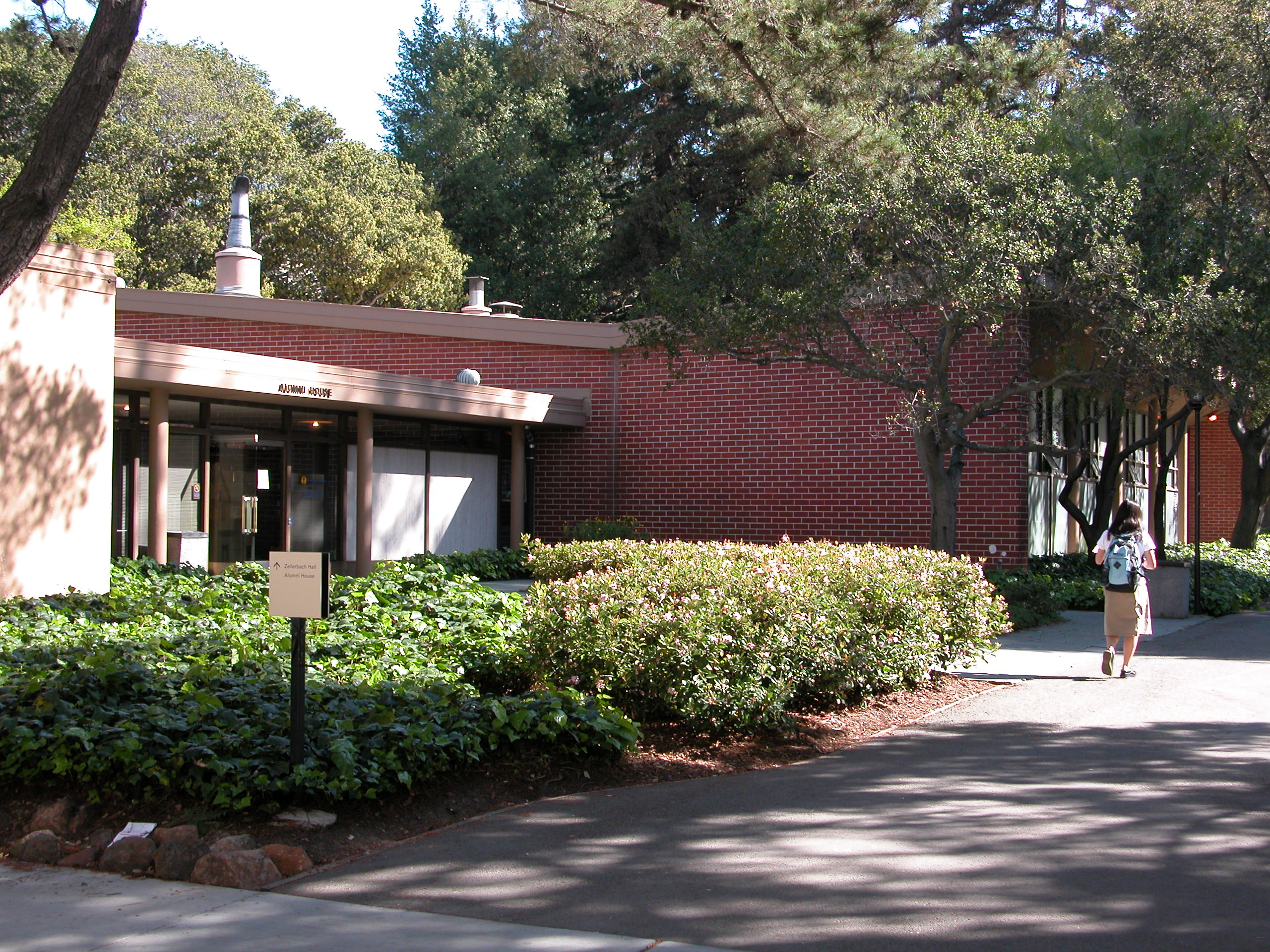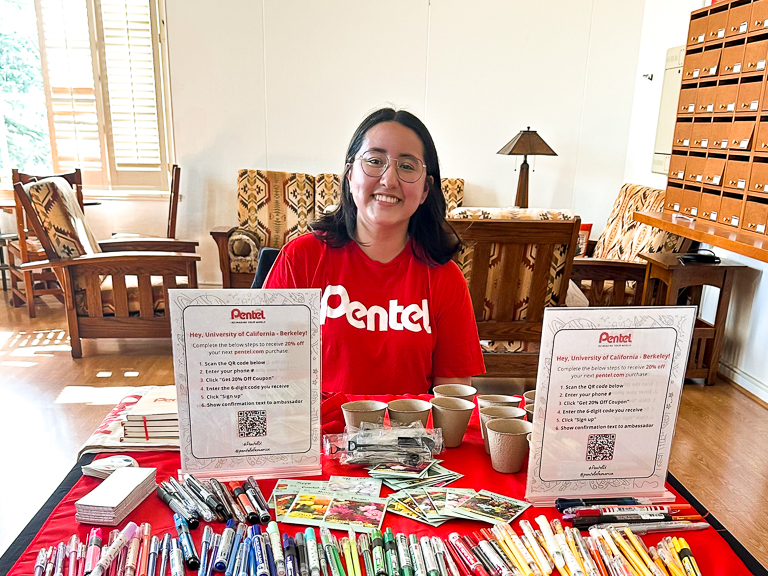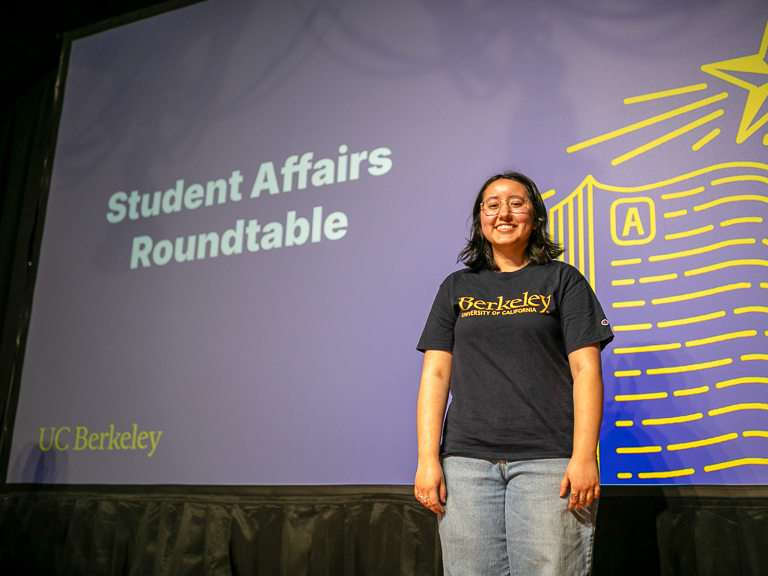
Tips From a Recent UC Berkeley Graduate
Not everyone starts college the same way. Maybe you arrived confident about your post-grad plans, with a clear four-year roadmap in hand. Or maybe, like me, you had a general idea but figured things out as you went along. Whatever your situation, I encourage you to begin your career prep early. The earlier you start, the more likely you are to have options and confidence once graduation rolls around. Here are some lessons I learned over the course of four years navigating my career path as a first-generation student at UC Berkeley.
Learn to Pivot and Adapt
It’s okay to not know exactly what you want to do post-grad. Read that again. Seriously—it’s okay! But at some point, you do have to gain a general understanding of your goals and interests. I recommend exploring Berkeley Career Engagement’s useful list of resources to discover majors to career options. Included on this list is using LinkedIn to find alumni, which leads me to my next point.
Conduct informational interviews. Connect with professionals whose roles you may have an interest in or are curious about. Learn and observe all you can early on so you’re ready to move on to the next step.
Working in industries “outside” of your major is possible. If you want to work in a field you don’t necessarily have a “traditional” educational background for, you might have to go the extra mile: pursue extra club opportunities, internships, or take a few extra classes outside of your major, to name a few. Talk to your classmates, reach out to alumni in your major, attend Q&A panels hosted by departments or pre-professional clubs, and talk to your professors and GSIs to learn more about their paths and ask for advice. And don’t get discouraged! You’ve got this.
Take Advantage of What’s Around You
Get experience with on-campus clubs and orgs. Don’t be scared of pre-professional clubs that ask for applications—apply! I know UC Berkeley has a reputation around these clubs, but honestly, they’re good practice for the real world (the application process at least). Quite a few clubs participate in the Blue Heart Initiative, so getting experience through clubs and orgs isn’t difficult!
Don’t ignore your emails. Stay informed about what’s happening in your major or minor department and other campus organizations. I used to get so many emails from professors and GSIs sharing roles and opportunities, or looking for students to help with research projects. If you’re not signed up for any newsletters, go sign up for one! And if you’re not sure if your major department has a newsletter, ask your advisors.
Look up when you’re walking through Upper Sproul Plaza. I know we all like to walk with our heads down and earbuds in, but there’s so much going on around campus that you might be missing out on. Look at the flyers posted in and around campus buildings, stop by your professor’s office hours, or ask a student tabling what their club is working on. You never know what you’ll stumble upon.
There is something out there for you. You might just not have found it yet! There is so much out there that it can be a bit overwhelming, I know. Find that niche research project part of URAP, go on an Alternative Breaks trip, take a DeCal on a subject you want to learn more about, and learn all about experiential learning opportunities. Find something you care about, and join in on the action. And if, on the rare occasion, you find there isn’t an established organization or program out there dedicated to what you want to do, start one.
Also, Look for Off-Campus Opportunities
There’s more out there than just internships and clubs. There are fellowships, rotational programs, job shadow opportunities, and even micro-internship programs. Volunteer opportunities are also great ways to gain experience and work with nonprofits on issues that matter in surrounding campus communities or beyond.

I was UC Berkeley’s Pentel Student Ambassador my last semester of college, an opportunity I found out about because I was signed up for an external newsletter.
But how do you find those opportunities? Start a list, and update it frequently. If you stumble upon something but the application deadline has passed, write it down somewhere so you’re ready for the next application cycle. Take pictures of flyers you see around campus, keep checking resources like the Berkeley Discovery Opportunity Hub, and ask upperclassmen or alumni on LinkedIn for recommendations. Don’t expect the perfect thing to fall into your lap—go out there and find it.
See It All in Action: My Campus Resume!
The clubs I was in and the Work-Study job I had while at UC Berkeley were so important for my professional development and building a resume and portfolio that led to internships and other career opportunities. Here is a breakdown of what I learned from my extracurricular involvement, from a professional development standpoint, and in chronological order.
Student Affairs Communications, Student Writer — This Work-Study job that I started in my first semester has been invaluable in shaping my resume, portfolio, and writing skills overall. I cannot recommend Work-Study opportunities enough! I built my writing portfolio, had the opportunity to meet and interview students across campus, developed technical skills, and much more. All part-time jobs have the potential to be building blocks for other positions, which is something you should always keep in mind.

I presented at the Student Affairs Roundtable during my last semester at my Work-Study job.
Berkeley Fiction Review (BFR) — I think almost every English major at some point or another considers going into the publishing industry after graduation. I know I did, and BFR was one of my first ways of exploring that option during my sophomore year. I read a lot of short stories and learned fundamentals of the publishing and media industries, got to write a few of my own articles for their blog, and heard from alumni of the magazine who were working in the publishing industry themselves after having graduated.
Business Careers in Entertainment Club (BCEC) — One of my earliest exposures to marketing careers and networking was in BCEC. I attended a lot of their alumni and professional Q&A panels and heard great advice from a multitude of different people. The club also pushed me to finally make a LinkedIn account. I worked on a semester-long social media marketing campaign, and it was a great way for me to gain experience in marketing.
Honorable Mention: Art of Writing Internship Program — Around this time, I did my first paid summer internship through Art of Writing on campus. The program supports you throughout the internship with mentorship and connects you with other interns who are also interning at other nonprofits and companies.
Golden Bear Orientation Leader (OL) — I signed up to be an OL with a close friend of mine the summer before junior year, and it was so much fun. You’re trained beforehand and then you use those leadership skills throughout GBO. It’s a great building block for anyone who wants more leadership and time management experience (you make your schedule of activities and stick to it!).

Me and my OL pair Harjot on a cruise around the bay!
ASUC VoteCoalition — I joined VoteCo as a Communications Associate in my junior year and worked on many different civic engagement social media projects. I also tabled for the organization regularly, which I wasn’t used to, but it was something that helped get me out of my shell more. VoteCo taught me a lot about on-campus orgs and to appreciate civic engagement even more.
Berkeley Undergraduate Journal (BUJ) — I liked BFR, but I also wanted to do more copyediting, so in my senior year, I joined BUJ. I read submissions, submitted my thoughts on each one, and then participated in editing rounds. Being an English major prepared me for the editing and feedback aspect of it all, but it’s never a bad idea to gain more experience in something, especially if it’s a little different than what you’re used to.
English Undergraduate Association (EUA) — I joined the board as a treasurer in my junior year and became president for my senior year. My involvement was scattered across administrative and social responsibilities — I was managing finances and semesterly scholarships, but also planning events for my peers in the department and working with faculty and staff to make it all happen. This was a great opportunity for me to slow down and connect with others in my major, learn what does and does not work in engaging students on campus, and strengthen my leadership skills.
Post Grad: Copywriting Internship — And this summer, I’m interning at an ad agency as a copywriting intern. Everything I did on campus helped me get other internships that eventually led to this one, whether it was building up my resume or just exposing me to a field I didn’t know I was interested in.
You Got This!
Don’t be scared to put yourself out there and ask questions. And, be kind to yourself — the internship and job search process can be long and frustrating, but it’s worth it in the end. Do your best to stay motivated and remember your goals.
Melissa Mora-Gonzalez, Class of 2025, majored in English and minored in conservation and resource studies. Feature image of Alumni House by Steve McConnell.
Want More?
- Post-grad job hunting tips from Lucas.
- Your guide to finding the right internship.
- Read more advice from me.